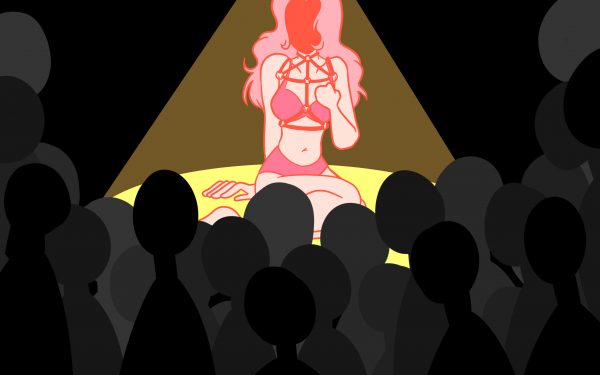Sex Ed(itorial): What’s your body count?
TikTok misogyny and the demonization of women’s sexual freedom
On tiktok, it seems that a lot of Gen Z’s sexual discourse revolves around body counts.
The phrase itself originates from military terminology, usually referring to the number of enemy troops killed.
Now, it refers to the number of sexual partners one has had, a testament to the dynamics of violence and domination that inform our views of sexuality.
This heteronormative obsession with someone’s body count is harmful to Gen Z’s sexual health.
Most people consider vaginal penetrative sex to be the sole measure for body counts. This excludes oral and manual sex, relegating them to the twilight zone of “not-real-sex.”
Following this logic means that a lesbian couple could not have “real sex” unless (phallic) penetration is involved.
There shouldn't be a difference between if someone has had sex with 20 people instead of six.
Unfortunately, for most people, it’s a pretty big difference.
Generally, people want to be with a partner who’s sexually experienced, but not too much.
Since it’s hard to actually figure out how sexually experienced someone is without engaging with them sexually, people use the body count as a proxy for sexual experience.
However, a body count does not really measure someone’s sexual experience as you can gain plenty of experience by having sex with the same person over and over.
A lot of the discourse regarding body count stems from insecurity.
There are those who are worried that they can’t satisfy someone who has a lot of experience. There’s also the fear that a highly experienced sex partner will find sex less special. On the other end, some worry that having too high of a body count will lead to prospective partners judging them.
There is also the double standard surrounding sexual activity and gender; the man who sleeps with many women is a stud but the woman who sleeps with many men is a slut. This double standard is not just a product of popular culture, but is measurable.
The sexual double standard (SDS) and its slutshaming isn’t just a modern phenomenon associated with reactionary views regarding women’s liberation.
It’s actually a showcase of the western cultures' very rigid gender roles, dating back to the Ancient Greeks. For example, mythological hero Heracles was known for his body count, on the battlefield and in bed.
Our gender and sexual norms dictate that men should pursue sex, but only with women. At the same time, women must remain chaste. And if they choose to have sex with other women, it’s not real sex anyway.
Restrictions on sexual openness emerged at the same time as patriarchal societies began to develop across the world.
A man seeking to pass on his property to his children wants to make sure that his children are genetically his.
The easiest way to do this is to restrict his wife’s ability to have sex. This restriction doesn’t apply to men, who are given the patriarchal power of choosing to whom they pass on their private property. Thus, the sexual double standard is born, and enforced post-hoc by religious explanations and cultural justifications.
As we try to move past the restrictions of patriarchy, we find ourselves limited by strict gender norms. These norms hurt us and fuel our insecurity about sex. This insecurity can even manifest itself in the form of full-blown arguments between partners.
While feminists and pro-sex activists have been working to destigmatize sex and body counts, other less sex-positive figures have cropped up.
Gen Z has heard messages reinforcing traditional—sexist and heteronormative—views of sexuality.
“A lot of the world’s problems could be fixed if women walked around with their body count on their foreheads” is what former kickboxer turned misogynistic internet celebrity Andrew Tate had to say on the topic.
Despite supposedly being canceled and deplatformed more than a year ago, he remains active on social media.
Video clips of him regularly go viral, amassing millions of views, many of them by impressionable young men.
Sex positive messages rarely have the same reach as restrictive messages. Insecurity and strong cultural norms make us all more receptive to anti-sex messages and the rise of the internet allows those messages to spread like wildfire.
The obstacles we have to climb are not insurmountable.
We Gen Zers need to critically examine the messages that we see in the media regarding sexuality. We have to understand that these messages promote a vision of sexuality that is heteronormative and that disproportionately harms women.
This article originally appeared in Volume 44, Issue 12, published March 19, 2024.

_900_375.png)



_600_375_s_c1.png)

_600_375_90_s_c1.jpg)